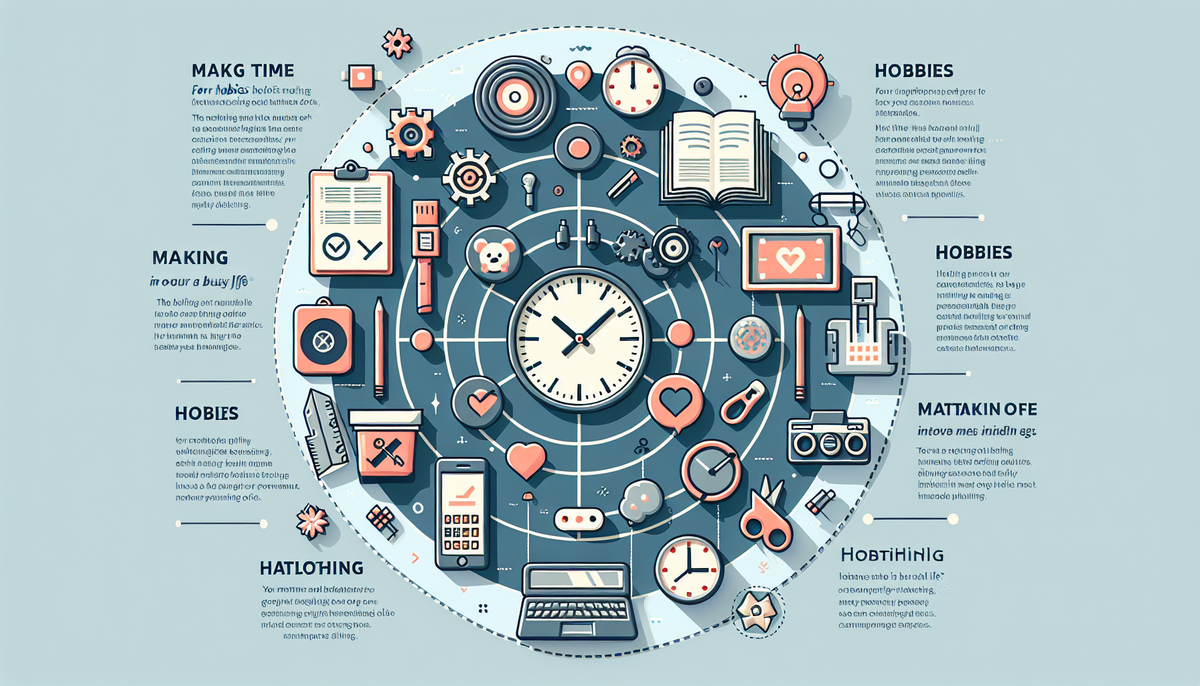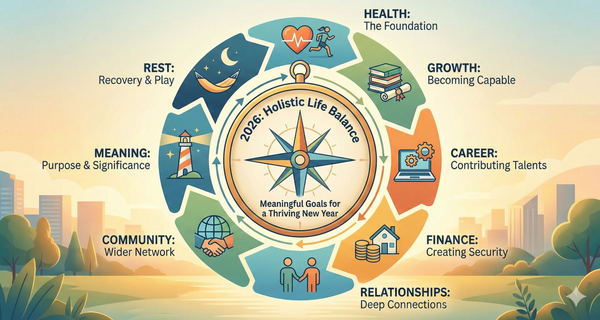Making Time for Hobbies in a Busy Life

Making Time for Hobbies in a Busy Life
In the relentless pace of modern life, the idea of having a hobby can feel like a distant luxury. Between demanding careers, family responsibilities, and the endless ping of notifications, who has time for daily fun? This is a common sentiment, but what if making time for hobbies wasn't just another item on your to-do list, but the very key to a more balanced and productive life? This article will explore why prioritizing rest and hobbies is essential for your career and well-being, and provide practical strategies to reclaim your time for personal passions.
Why Making Time for Hobbies is Non-Negotiable
Many people view hobbies as optional extras—activities to indulge in only when all other responsibilities are met. However, integrating personal interests into your life is a crucial component of a sustainable and successful career. Let's explore the core benefits.
Boost Your Mental and Emotional Health
Engaging in activities you love has a direct and positive impact on your mental well-being. Hobbies provide an outlet for stress and a much-needed break from the pressures of your professional life. Whether it's painting, gardening, or playing an instrument, these activities can lower cortisol levels, reduce symptoms of anxiety and depression, and increase overall happiness. This mental reset allows you to return to your work feeling refreshed and more resilient.
Sharpen Your Creative and Problem-Solving Skills
Hobbies are a playground for your brain. When you learn a new skill or engage in a creative pursuit, you're forging new neural pathways and enhancing your cognitive flexibility. The problem-solving skills you develop while debugging a line of code for a personal project or figuring out a complex knitting pattern can translate directly to your work, allowing you to approach challenges with a fresh perspective.
Prevent Career Burnout and Reduce Stress
Burnout is a state of emotional, physical, and mental exhaustion caused by prolonged or excessive stress. Hobbies act as a powerful antidote. They provide a sense of identity outside of your job title and remind you that your worth is not solely defined by your professional achievements. By creating a healthy work-life balance, you can mitigate the risk of burnout and maintain a long and fulfilling career.
How to Find Hobbies That Fit Your Busy Life
The key to sticking with a hobby is finding one that genuinely excites you and fits realistically into your lifestyle. Here’s how to identify the right pursuits for you.
Identify Your True Passions and Interests
Take some time for self-reflection. What did you enjoy doing as a child? What topics do you find yourself reading about in your spare time? Make a list of activities that pique your curiosity, without worrying about whether they're "productive" or not. The goal is to find something you do for the sheer joy of it.
Consider Hobbies with Low Barriers to Entry
You don’t need to invest in expensive equipment or commit to a rigid schedule to enjoy a hobby. Consider activities like hiking, drawing, writing, or learning a language through an app. These hobbies can be started with minimal investment and offer a great deal of flexibility.
Think in Terms of "Micro-Hobbies"
If you can't find a two-hour block of time, how about 15 minutes? A "micro-hobby" is an activity you can enjoy in short bursts. This could be anything from doing a crossword puzzle on your commute, practicing a musical instrument for ten minutes, or sketching in a notebook during your lunch break. These small moments of daily fun can have a surprisingly large impact on your overall well-being.
Practical Strategies for Integrating Hobbies into Your Daily Routine
Once you have a few ideas, the next step is to carve out time in your busy schedule. Here are some proven techniques.
Master the Art of Time Blocking
Treat your hobbies with the same seriousness as you would a business meeting. Schedule them directly into your calendar. Whether it's an hour on Saturday morning for a bike ride or 20 minutes every evening to read a novel, blocking out the time makes you far more likely to follow through.
Combine Hobbies with Existing Habits
Habit stacking is a powerful technique. Identify an existing habit in your daily routine and link your new hobby to it. For example, you could listen to a podcast about a topic you're passionate about while you're cooking dinner, or practice your Spanish vocabulary while you're drinking your morning coffee.
Be Realistic and Start Small
One of the biggest mistakes people make is trying to do too much, too soon. If you haven't exercised in years, don't sign up for a marathon. Start with a 15-minute walk and build from there. The goal is to create a sustainable habit that brings you joy, not another source of stress. By starting small and being consistent, you can gradually build momentum and make hobbies an integral part of your life.
Conclusion
Creating a fulfilling life isn't about finding a perfect 50/50 split between work and play—it's about weaving moments of joy and personal expression into the fabric of your daily existence. By understanding the profound benefits of hobbies, choosing activities that align with your passions, and using practical strategies to make time for them, you can achieve a more sustainable and rewarding life. Don't wait for a less busy future to start enjoying yourself. Take the first small step today and rediscover the power of play.




